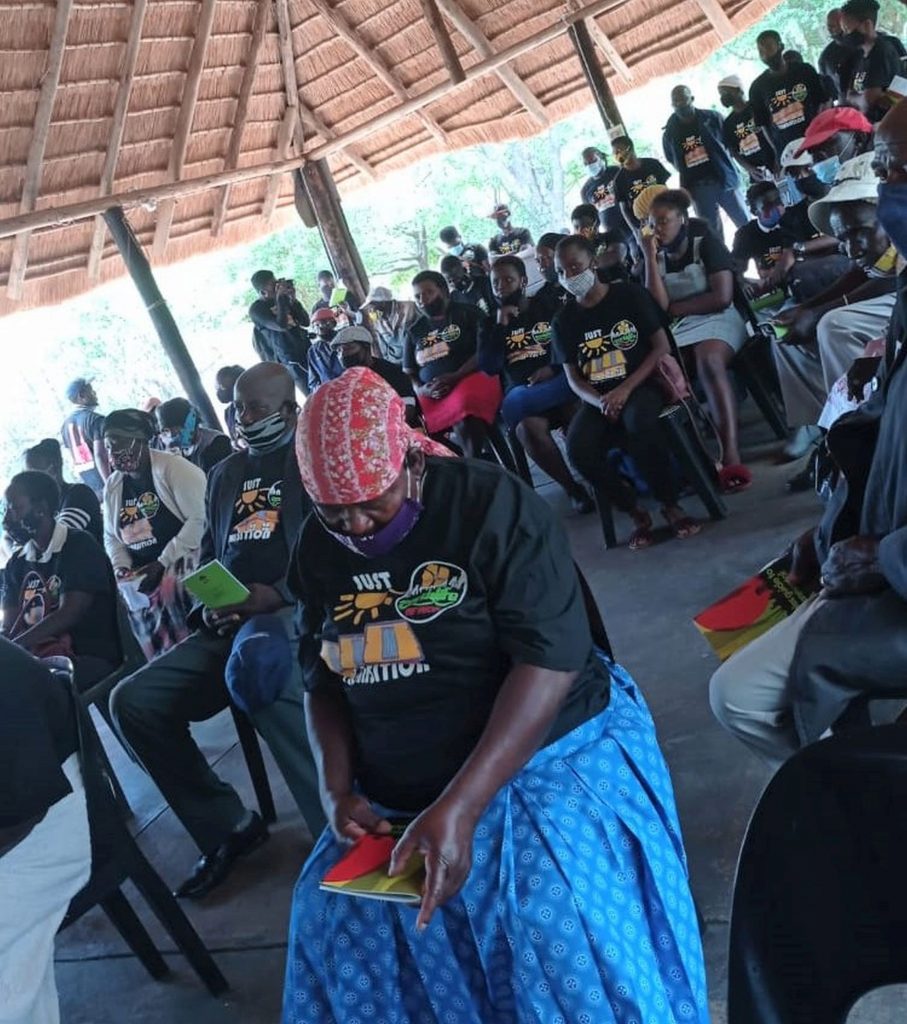Last year, motivated by the need to help people defend their communities and their environment from potential harm, Earthlife Africa Johannesburg launched a useful tool to ensure South Africans know their rights when it comes to their role in the assessment of proposed projects that could affect them.
The booklet, a People’s Guide to Environmental Rights: A guidebook to help South Africans understand and protect their environmental right – guided by the Constitution, the National Environmental Management Act (NEMA) and the Mineral and Petroleum Resources Development Act (MPRDA), as well as other relevant laws – makes clear which legislation and laws apply to protecting the environment, as well as identifying the role-players involved in environmental management.
According to Earthlife’s Director Makoma Lekalakala, “With the help of the People’s Guide to Environmental Rights, people will also be clear on the main processes and the stages at which public participation is compulsory.”
Lekalakala says that there are a host of issues that make the need for meaningful and robust public participation a critical part of project assessment. Corruption, a lack of consideration for the environment and the people who rely on it, as well as the risk of a lack of objectivity when it comes to projects that are favoured, which may reduce the participation to a mere box-ticking exercise.
“There may also be division in communities when people do not agree on what is considered progress. Some may want projects to happen because of the promise of development, while others are more concerned with the possible impacts on the environment. However, it is only through meaningful public consultation that any false or exaggerated claims of the benefits of the activity – such as job creation, contracts and tenders and social investment such as clinics and schools – can be properly dissected, to establish whether the reality will match up to the promises made.”

Community members from Mulaumbane near Makhado get the first look at Earthlife Africa’s public participation guidebook, aimed at helping South Africans understand and protect their environmental rights.
 “Unfortunately, there are parties who knowingly or unknowingly infringe on our right to a healthy and safe environment, and who appear to disregard the potential for harm. But, what South Africans may not realise is that we have a range of rights in relation to the environment and these rights need to be balanced with the rights of those promoting the development. And, while it should seem obvious that we have the right to a healthy and safe environment including clean air and clean water, many of our people are suffering today as a result of approved projects that harm both them and their environment.”
“Unfortunately, there are parties who knowingly or unknowingly infringe on our right to a healthy and safe environment, and who appear to disregard the potential for harm. But, what South Africans may not realise is that we have a range of rights in relation to the environment and these rights need to be balanced with the rights of those promoting the development. And, while it should seem obvious that we have the right to a healthy and safe environment including clean air and clean water, many of our people are suffering today as a result of approved projects that harm both them and their environment.”
Lekalakala says, “We are grateful to have such an easy-to-read resource that provides a useful overview of South African environmental law and that can be shared widely with all South Africans. This way we can ensure when the need arises, that people have the tools to protect themselves and the environment they rely on.”
Download the Public Participation booklet here.
Other environmental rights include:
- Right of access to sufficient food and water;
- Right to public participation in environmental Decision-making;
- Right of access to information;
- Right to just administrative action;
- Right to assembly, picket, demonstrate and Petition;
- Right to refuse to do work that will harm the Environment;
- Right to privately prosecute parties to protect the environment;
- Right to be consulted and lodge objections before mining activities take place;
- Right to be consulted and object to damage to and removal of graves

